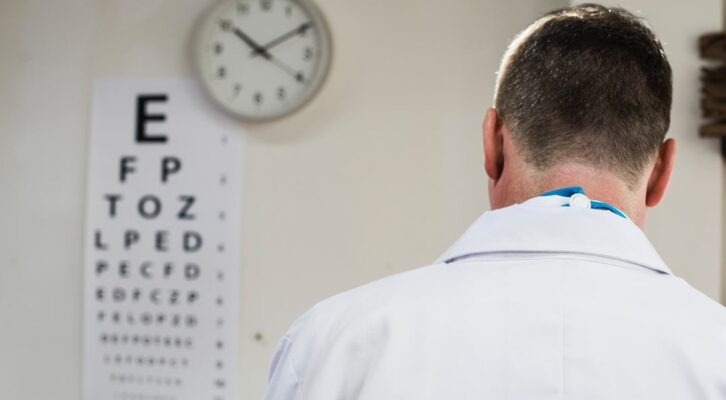How Often Do You Need an Eye Exam?
Did you know that about six million Americans suffer from some sort of vision problem? An additional one million Americans have some form of blindness.
Many vision problems could be prevented or caught early on if you were to get regular eye exams.
That might bring up more questions, though- how often do you need an eye exam? What happens if you don’t get an eye exam? How else can you protect your eye health?
In this article, we’ll answer all of those questions and clear up any of your confusion. Protecting your eye health is important, but it isn’t as scary as it seems. Keep reading, and you’ll see just how simple it can be.
How Often Do You Need an Eye Exam?
You’ve probably heard a variety of answers to this question. You need an eye exam every five years, every 2 to 4 years, yearly- what’s the correct answer? The truth is that the answer is different for everybody depending on your age and eye condition.
Children between the ages of three and eighteen need an eye exam at least once a year. If you’re an adult or a teenager who is no longer in school, you need an exam at least every two years.
However, if you’re over sixty-five or at high risk, you should get a yearly eye exam. High-risk patients include those with a history of eye problems, those who have dangerous jobs, and those who take prescription medication with vision risks.
The frequency of when you need eye exams varies so much because your eyes change at different rates throughout your entire life. Making sure you’re having eye exams through these changes will allow you to catch potential problems.
What Happens During an Eye Exam?
During an eye exam, your doctor will first ask you questions to establish your medical history. If you have glasses or contacts, you should bring them so the doctor can examine your prescription.
Your doctor will perform a variety of different tests. Some of these will test your visual accuracy, while others will measure your inner eye pressure. These tests will inform your doctor if your eyes are healthy or not.
Your doctor can use these tests to decide if you need follow-up tests or not. Sometimes you may need multiple tests to rule out possible eye conditions.
Your eye doctor will also determine if you need glasses or contacts. If you already have glasses or contacts, they’ll decide if you need a stronger prescription.
Having an eye exam might feel scary, but it’s really not as complex as it seems. Eye exams are an easy way of maintaining your eye health and your vision.
What if You Don’t Take an Eye Exam?
Skipping your eye exam is a bad idea, so don’t try and tell yourself it’s not a big deal.
Eyes are one of the biggest indicators that something might be wrong with your body. All sorts of diseases come with early indicators that can be found in the eyes. One such disease is diabetes.
Small changes in your eyes can also indicate neurological problems. They can even be used to detect a brain tumor.
In addition, many eye diseases take a long time to develop visible symptoms. Eye exams can catch these diseases early, so they can be managed.
Lastly, your eyes change quickly. Even if your vision and eye health were fine last year, they may not be fine this year. Catching vision changes early on means you can get glasses or contacts, protecting you from eye strain.
If you can’t make the eye appointment you had, it’s better to reschedule than skip it.
Should You Come In Early?
Sometimes, you might notice vision problems that you think can wait until your next exam. Sometimes they can wait, but sometimes these seemingly small vision problems can mean an eye emergency.
The biggest eye emergencies to be aware of are chemical contact and foreign bodies within your eye. If you’ve gotten anything in your eyes, you should be speaking to your optometrist as soon as possible.
However, there are other problems to be aware of. If your vision suddenly worsens or blurs, that’s an indicator of a possible eye emergency. So are tunnel vision and dark spots in your vision field.
Lastly, you should also contact your eye doctor if you’re experiencing large amounts of eye discharge. This could be an indication of a problem you didn’t even know was there.
If you’re wondering if something counts as an eye emergency or not, put in a call to your eye doctor. They’ll tell you if you should come in or not.
Protecting Your Eye Health
In between eye exams, you should make sure to protect your eye health. Taking small preventative measures can make a major impact on your eye health.
One easy thing that you can do is avoid dry eyes. If you spend a lot of time staring at a screen, take a break every twenty minutes. Go look at something twenty feet away for twenty seconds to give your eyes a rest and avoid inflammation.
Another simple measure you can take is wearing sunglasses when you step outside. You should also wear sunscreen on the skin around your eyes. Your eyes and the area around them are sensitive and prone to UV radiation.
Finally, don’t smoke! If you do smoke, consider working on quitting. Smoking increases your risk of cataracts, dry eyes, and eye tissue degeneration.
Reach Out to Us Today
Now that we’ve answered the question “how often do you need an eye exam”, are you ready to book your eye exam? Or do you have more questions that you need answered?
If your answer is “yes”, then you should reach out to us at Cedar Park Vision! Simply fill out the form and we’ll get back to you with answers as soon as possible.
Don’t wait- reach out to us today! You won’t regret it when we help you take care of your eye health.

















Leave a Comment